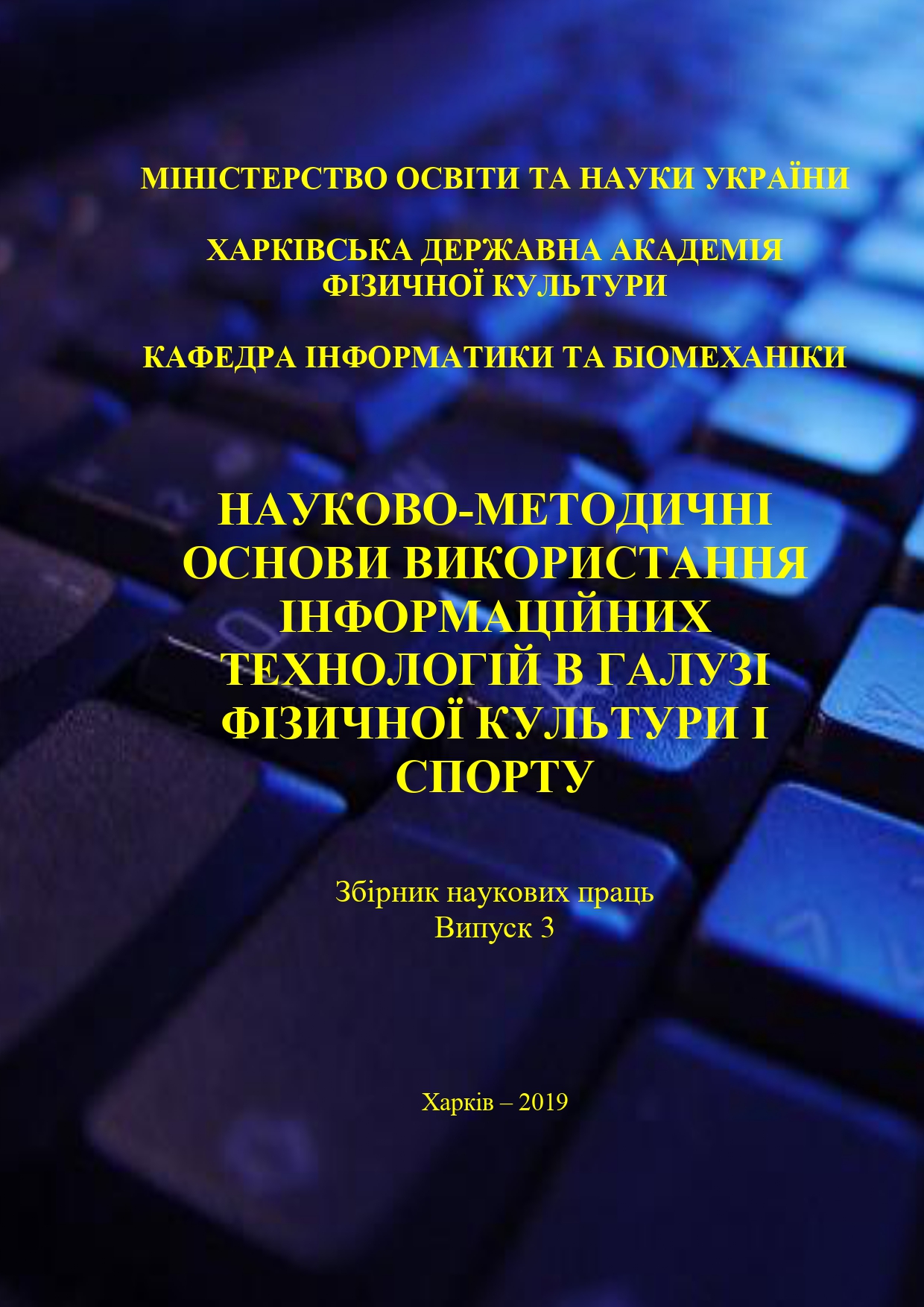СУЧАСНИЙ ПОСТУП ІНФОРМАЦІЙНО-КОМУНІКАЦІЙНІЙ ТЕХНОЛОГІЙ У ТЕСТОВИЙ КОНТРОЛЬ ФІЗИЧНОГО ВИХОВАННЯ СТУДЕНТІВ
Keywords:
студент, фізичне виховання, тестовий контроль, інформаційно-комунікаційних технології.Abstract
Розглянуто питання новий підхід до вирішення проблеми
підвищення ефективності контролю у фізичному вихованні студентів
закладів вищої освіти. Запропоновані у роботі науково -практичні
рекомендації застосування розроблених з використанням інформаційно-комунікаційних технологій засобів контролю, упровадження яких у
практику є пріоритетним напрямом забезпечення сучасного поступу у
процесі контролю.
References
Корягин В.М., Блавт О.З. Тестовый контроль в физическом
воспитании : монография. Germany: LAP LAMBERT Academic Publishing is a trademark of: OmniScriptum GmbH & Co, 2013 , 144.
Егоров А.Б., Захватова Т.Е., Кутузов М.Ю., Танянський С.Ф.
Применение информационных технологий в физическом воспитании Вісник Чернігівського національного педагогічного університету ім. Т.Г. Шевченка. Серія : Педагогічні науки. Фізичне виховання та спорт, 2011, 91, 2, 56-59.
Столяров В.И. Инновационная концепция модернизации теории и практики физического воспитания : монография. Бишкек : Изд-во «Максат», 2013.
Armour К. New Directions for Research in Physical Education and Sport Pedagogy. Sport, Education and Society, 2014. № 19(7), рр. 853-854.
Estivalet M., Springer Р. The Engineering of Sport 7. Paris: SpringerVerlag, 2009, 715.
Downloads
Published
Issue
Section
License
Authors who publish with this journal agree to the following terms:- Authors retain copyright and grant the journal right of first publication with the work simultaneously licensed under a Creative Commons Attribution License that allows others to share the work with an acknowledgement of the work's authorship and initial publication in this journal.
- Authors are able to enter into separate, additional contractual arrangements for the non-exclusive distribution of the journal's published version of the work (e.g., post it to an institutional repository or publish it in a book), with an acknowledgement of its initial publication in this journal.
- Authors are permitted and encouraged to post their work online (e.g., in institutional repositories or on their website) prior to and during the submission process, as it can lead to productive exchanges, as well as earlier and greater citation of published work (See The Effect of Open Access).

